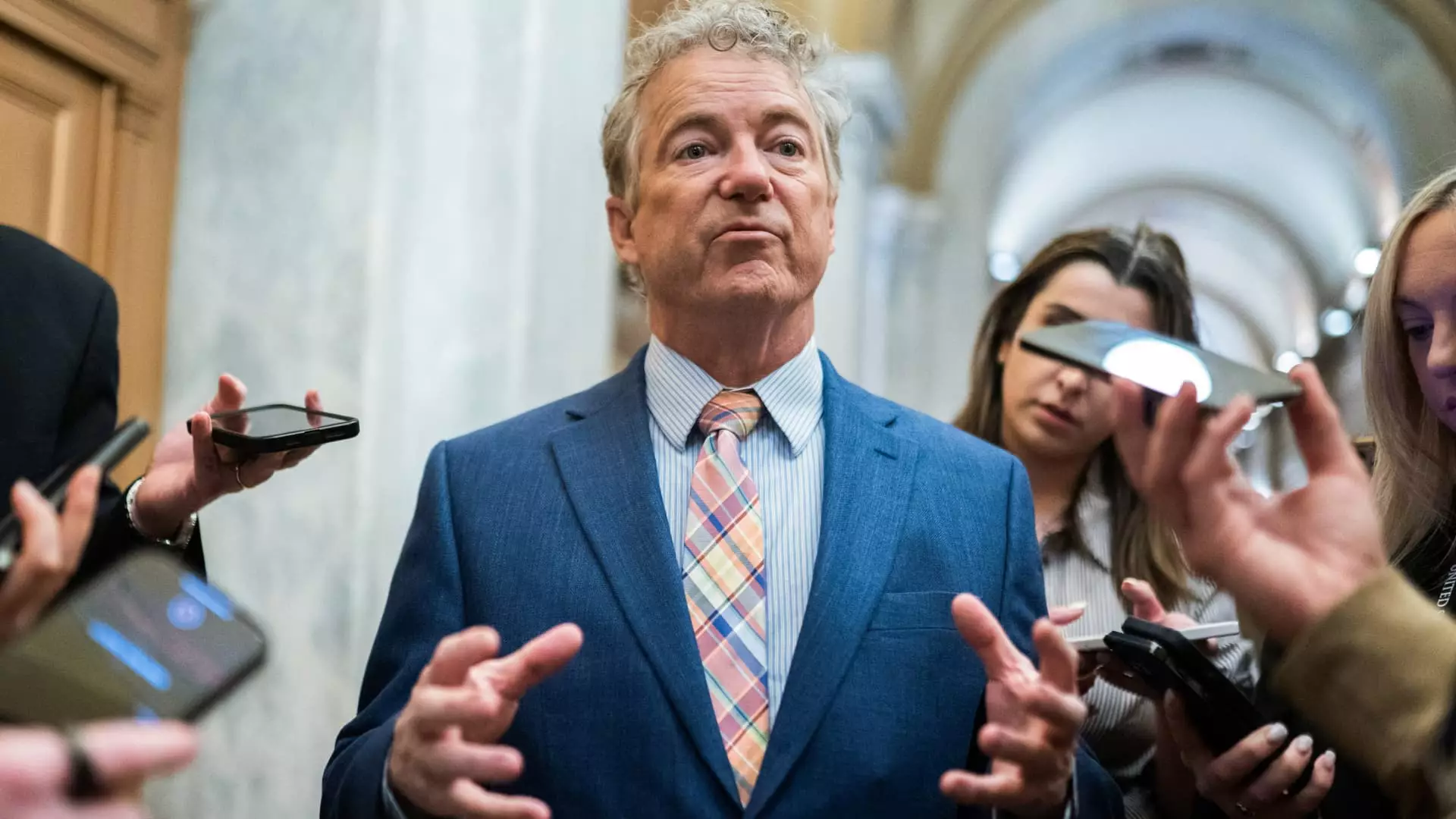In the tumultuous landscape of modern American politics, few spectacles capture attention like the clash between prominent figures of the same party. The recent feud between President Donald Trump and Senator Rand Paul encapsulates this phenomenon, showcasing a rift not merely over personalities but also profoundly divergent philosophies about fiscal governance. With the backdrop of a proposed budget bill that threatens to increase the national debt by trillions, this confrontation raises pressing questions about the integrity of Republican principles and the future of American economic policy.
Trump’s Allure of Growth Amidst Rising Debt
President Trump ardently defends his proposed budget bill, which he has hailed as a “one big, beautiful bill.” He claims that this financial package will ignite “tremendous GROWTH” in the economy, a narrative that appeals to his base but glosses over the stark realities of accruing unsustainable debt. The notion that substantial spending, even when paired with tax cuts, will result in economic prosperity is a risky gamble. Numerous economists argue that when governments borrow significantly without a clear plan for repayment, it often diminishes public trust and weakens the nation’s financial stability.
Trump’s dismissal of Paul’s concerns about the $5 trillion increase in the debt ceiling is emblematic of his governing philosophy: prioritize growth at almost any cost. His staunch retorts, labeling Paul as a politician stuck in a perpetual “NO” position, reflect a broader tendency within the party to equate fiscal conservatism with obstructionism. However, this rhetoric begs the question: Is it truly radical to advocate for fiscal responsibility in a time of escalating national debt?
Paul’s Libertarian Standpoint: A Voice of Caution
At the core of Senator Rand Paul’s objections is a libertarian skepticism about government overreach and excessive spending. By standing firm against the proposed debt ceiling increase, he is not simply being a naysayer; rather, he’s voicing a concern rooted in foundational economic principles. The senator argues, “Setting the ceiling at $5 trillion is an indication that we’ll borrow that much,” illustrating a fundamental belief that borrowing without restraint ultimately burdens future generations.
Yet, while Paul’s vision is one that seeks to rein in fiscal irresponsibility, his approach raises questions about the practicality of his stance amidst the pressures of governance. In an age where immediate results are demanded by constituents and the public eye, is it feasible to hold a position of unwavering fiscal prudence? Paul acknowledges the necessity of tax cuts and has expressed willingness to compromise on spending cuts, but his insistence on defeating the debt ceiling increase serves as a litmus test for the authenticity of Republican fiscal ideals.
Party Unity or Ideological Division?
The tussle between Trump and Paul signifies more than an interpersonal dispute; it heralds a deeper ideological schism within the Republican Party. Historically, the GOP has championed conservative fiscal policies, yet the current leadership seems increasingly comfortable favoring a model that prioritizes short-term growth through expansive spending—often at odds with traditional principles.
This conflict becomes particularly poignant given the reconciliation process being adopted to pass the budget bill. In steering away from bipartisanship, Republicans are faced with the reality of their own fragmentation; they can afford only a slim margin of dissent. If voices of caution like Paul’s are drowned out by a fervent push to push through the bill, the Republican Party risks alienating a segment of its membership that genuinely values fiscal conservatism.
Ultimately, this face-off between two Republican heavyweights encapsulates a clamor for clarity in party ideology. As Trump pushes for growth through governmental spending and Paul advocates for restraint, the future of economic governance in America hangs delicately in the balance. Defining the path forward—whether one of ambitious expansion or measured conservatism—will require not just spirited debate but a reevaluation of the very principles that undergird the party’s identity.

